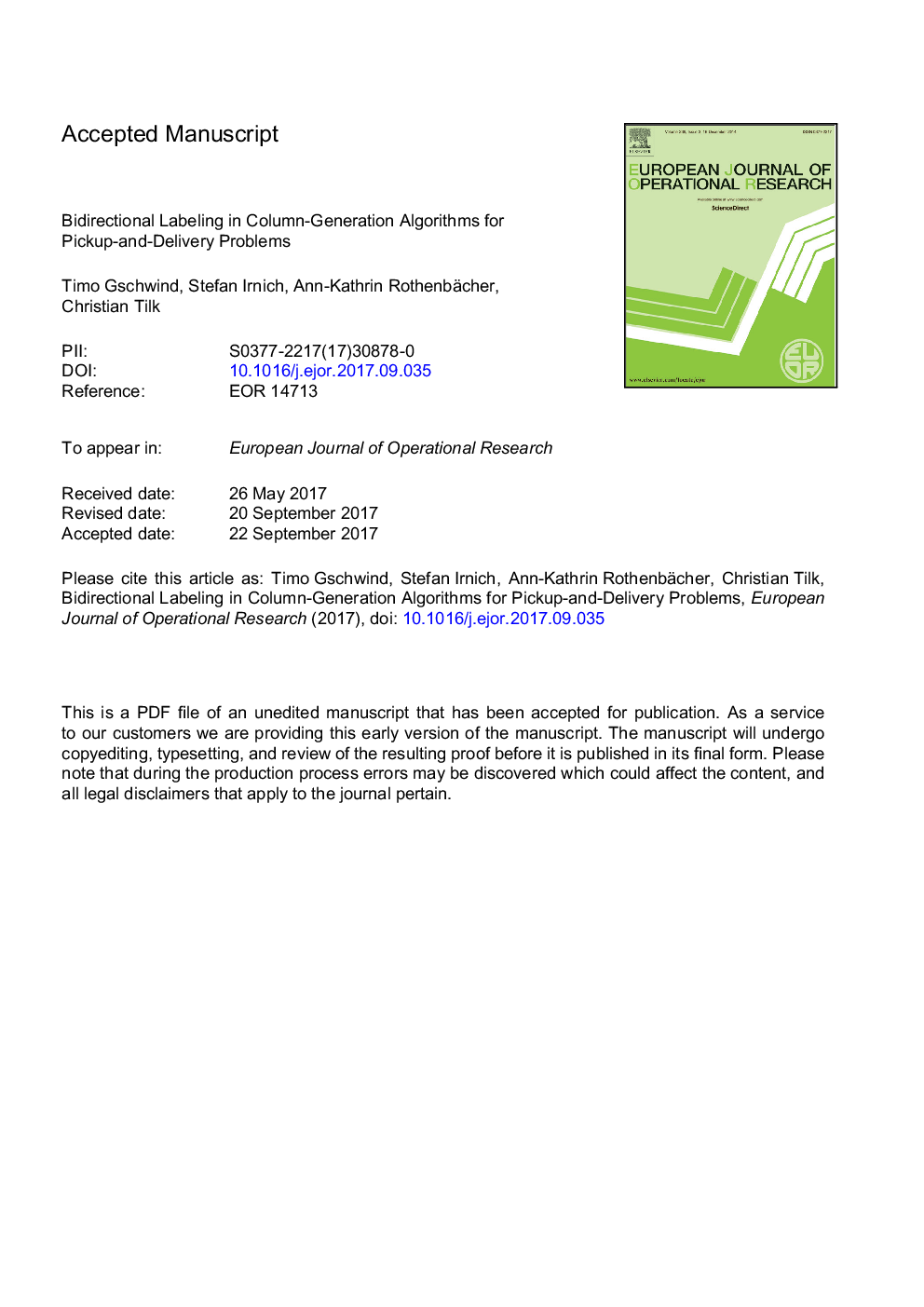ترجمه فارسی عنوان مقاله
برچسب زدن دو طرفه در الگوریتم های ستون نسل برای مشکلات وانت و تحویل
عنوان انگلیسی
Bidirectional labeling in column-generation algorithms for pickup-and-delivery problems
| کد مقاله | سال انتشار | تعداد صفحات مقاله انگلیسی |
|---|---|---|
| 161534 | 2018 | 20 صفحه PDF |
منبع

Publisher : Elsevier - Science Direct (الزویر - ساینس دایرکت)
Journal : European Journal of Operational Research, Volume 266, Issue 2, 16 April 2018, Pages 521-530
ترجمه کلمات کلیدی
مسیریابی وانت و تحویل، مشکل کوتاهترین مسیر با محدودیت منابع، برچسب زدن دو طرفه نسل ستون،
کلمات کلیدی انگلیسی
Routing; Pickup-and-delivery; Shortest-path problem with resource constraints; Bidirectional labeling; Column generation;

